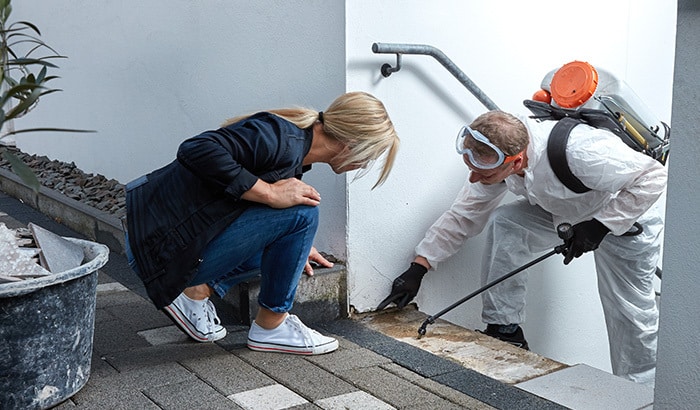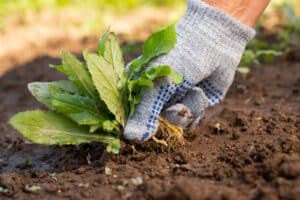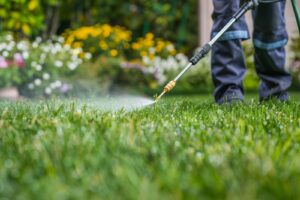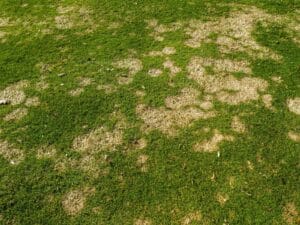Understanding the nuances of pest control can be complicated, but we’re here to help make sense of it so you can live pest-free. If you follow the proper safety precautions and instructions, you’ll be able to keep your home pest free without any problems.
Although pesticides are a terrific way to eradicate pesky bugs from your home and yard, they can cause harm if they’re not stored or used correctly. Today, we’re covering everything you need to know about pest control so that you can use pesticides safely and effectively this growing season.
Prevention
Understanding the full spectrum of pest control can be a daunting task. Before worrying about pesticides and equipment, prevention is the best place to start. The most effective way to deter pests is to remove their sources of food, water, and shelter sources.
- Food – Pests can find food from a mile away, so you must store your food properly. Find an airtight set of plastic or glass containers to store your flour, sugar, and open packages. Don’t leave any food out on the counter or the floor.
The garbage is another place that pests love to scour for food. Any garbage can that regularly holds food scraps must have a tight lid to prevent pests from entering. Empty your garbage frequently to avoid overflowing.
- Water – Leaky plumbing is an oasis for pests. If you notice any leaky faucets or pipes, have them fixed as swiftly as possible. Standing water is another place pests like to congregate. Clean up any standing water, and fix the problem behind it quickly.
- Shelter – Pests are experts at finding shelter. Holes and cracks are common places for them to hold up. To eliminate this shelter source, go through your home and fix any holes in the walls, cabinets, or pipes.
Another common place to find pests is amongst clutter. Clean up areas where old furniture, toys, equipment, etc., are stored. They just might be providing pests with a five-star hotel.
Pesticides
When people think about pest control, it usually goes hand in hand with pesticides. Pesticides can be very effective when trying to get rid of unwanted guests. But even though they are effective, they are also very dangerous.
Here are some tips to properly handle pesticides and stay safe:
- Instructions – When you purchase any pesticide, it’s essential to follow the instructions carefully. The instructions will tell you the safest and most effective way to prepare the pesticide. Your family, plants, or pets could be in danger if you do not follow the printed instructions. It also may not deliver the desired outcome.
- Home use – Not all pesticides are created equal– some are used for the home, and some may be used industrially. Only use pesticides that are specifically marked safe for home use. If a pesticide isn’t explicitly labeled with this information, look at the poison that is being used, and speak with a professional to confirm that it’s safe to use at home.
- Indoor/outdoor pesticides – Some pesticides are only safe when used outdoors. Ensure that when you use a pesticide indoors, it is labeled as an indoor pesticide. Using an outdoor pesticide inside can be very dangerous.
Storage and Disposal
Once you’re finished using them, properly disposing of and storing pesticides is just as important.
Here are some tips for properly storing and disposing of pesticides:
- Disposal – Before beginning your pesticide project, ensure you only mix up the amount you need. Avoid over-mixing as much as possible. If you accidentally mix too much, make sure you dispose of it correctly to protect people, pets, and the environment.
- Also, you should always read the label. Most products will come with directions on how to dispose of them properly. Look up your local solid waste management authority, environmental agency, or health department.
They will know if your community has a household hazardous waste collection program for disposing of unwanted, leftover pesticides. These authorities can also inform you of local requirements for pesticide waste disposal.
After you dispose of your pesticides, ensure you get rid of any container with which the pesticide came in contact. Never reuse a pesticide container; this will contaminate whatever will be stored later.
Never pour pesticides down the drain. Many water treatment centers cannot remove all pesticides dumped into a water source. Using this water can be a huge hazard for people and the environment.
- Storing pesticides – Some people like to buy food and other items in bulk, and having a reserve of essential items can be pretty helpful. That said, pesticides are something that you should never buy extra.
Only buy what you need for the project you’re tackling. When storing pesticides, follow the instructions on the label exactly. This will give you the most accurate information to store this poison safely.
Store pesticides in a locked, well-ventilated cabinet or shed, and keep away from pets or children. Also, keep them away from all food and medical supplies. When looking for a safe place to store your chemicals, steer clear from water or a place that could potentially flood.
Keep all pesticides in their original container. Never store pesticides in other containers, especially drink or food containers that can be mistaken for other liquids.
If you have an unfamiliar liquid in your home, don’t risk figuring out what it is. Use the steps mentioned above to dispose of the liquid properly. It’s always better to be safe than sorry when dealing with an unknown liquid.
Summit Lawn & Pest Control Can Help
If you’re looking for the best pest control services in Utah County, Summit Lawn & Pest Control experts are here for you! We are passionate about providing fast and affordable home lawn care and pest control services so you can focus on enjoying your yard instead of worrying about pesky insects and bugs.
Contact us today to schedule your free assessment! We serve Lehi, American Fork, Provo, Spanish Fork, and other cities in Utah County, Utah.






